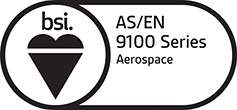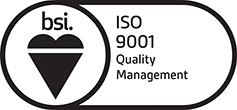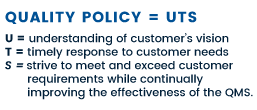What is Radiographic Test (RT) Inspection?
Radiographic testing, also referred to as radiography or X-ray inspection, is a highly valuable non-destructive testing (NDT) method utilized across a wide range of industries, including welding, casting, construction, and aerospace. Its primary purpose is to ensure quality control and inspection of materials by examining their internal structure using X-rays or gamma rays.
The process involves subjecting a material to X-rays or gamma rays, which then generates a radiographic image, commonly known as a radiograph, on either a film or digital detector. This resulting image provides a comprehensive view of the material’s internal details and defects, enabling the identification of critical issues such as porosity, inclusions, cracks, and other discontinuities that may compromise the material’s integrity.
Radiographic testing serves as an indispensable tool in maintaining the highest standards of quality and safety within various industries. By effectively revealing hidden flaws and imperfections, it allows for timely detection and subsequent remediation of potential weaknesses. This proactive approach not only ensures the reliability and durability of materials but also minimizes the risk of catastrophic failures that could have severe consequences.
Moreover, the versatility of radiographic testing makes it an invaluable asset in numerous applications. Whether it is assessing the structural integrity of welded joints, inspecting intricate castings, or evaluating the soundness of construction materials, this method provides a comprehensive and accurate analysis of the internal composition. Consequently, it aids in making informed decisions regarding the suitability and performance of materials, ultimately contributing to the overall success and longevity of components, structures, and pressure vessels.
X-ray NDT testing stands as a fundamental pillar of quality control and inspection in various industries. Its ability to penetrate materials and reveal internal flaws ensures the highest standards of safety and reliability. By employing this method, professionals can confidently assess the integrity of materials, identify potential issues, and take appropriate measures to rectify them. Thus, radiographic testing plays a crucial role in upholding the excellence and longevity of materials used in critical applications.
Radiographic Test Inspection methods
NDT Radiographic testing encompasses two main types: X-ray Radiography and Gamma-ray Radiography.
X-ray Radiography
The X-ray Radiography technique involves the utilization of X-rays generated by an X-ray tube to penetrate the material and generate an image.
Gamma-ray Radiography
Gamma-ray Radiography uses a radioactive isotope, such as iridium-192 or cobalt-60, is employed as the radiation source. The emitted gamma rays from the isotope penetrate the material and yield the radiographic image.
Advantages of Radiographic Testing
The advantages of radiographic testing are numerous and make it an indispensable tool for ensuring safety and reliability in a professional setting.
Firstly, radiographic weld testing offers exceptional sensitivity, allowing for the detection of very small defects or irregularities within an object. This high level of sensitivity enables the identification of hidden flaws that may compromise the structural integrity or functionality of the tested item. By revealing these imperfections, radiographic testing aids in preventing potential failures, accidents, or costly repairs, thereby enhancing overall safety and reducing financial losses.
Moreover, radiographic weld testing provides a comprehensive evaluation of the internal structure of an object. This technique enables the visualization of complex geometries, intricate assemblies, and hidden components that are otherwise inaccessible. By obtaining a clear image of the internal features, radiographic testing facilitates accurate analysis and assessment of the object’s condition, ensuring its compliance with industry standards and customer specifications.
Another advantage of radiographic testing is its non-destructive nature. Unlike destructive testing methods that require the destruction of a sample to assess its properties, radiographic testing allows for the examination of an object without causing any damage. This non-destructive characteristic is particularly valuable when dealing with delicate or expensive components, as it enables thorough inspection while preserving the integrity and functionality of the tested item.
Furthermore, radiographic testing offers the advantage of being a time-efficient technique. With advancements in technology, modern radiographic equipment allows for rapid image acquisition and processing. This efficiency translates into reduced inspection time, enabling faster decision-making processes and increased productivity in various industries. Additionally, the digital nature of radiographic images facilitates easy storage, retrieval, and sharing of inspection results, enhancing workflow efficiency and product conformance documentation.
The Unitek benefit
Our team of highly qualified NDT inspectors can determine subsurface discontinuities by carefully examining their nature, location and extent. Our team of non-destructive testing (NDT) technical specialists are highly qualified in ultrasonic test inspection. They hold Level II and III certifications from the American Society for Nondestructive Testing (ASNT), as well as other industry qualifications. Trust us in providing professional and reliable NDT inspection support services that will help you validate your product conformity.
Please contact us to obtain further details regarding our Radiographic Test inspection support services. The Unitek team of experts is readily available to assist you with any inquiries you may have about NDT Radiographic testing services.




